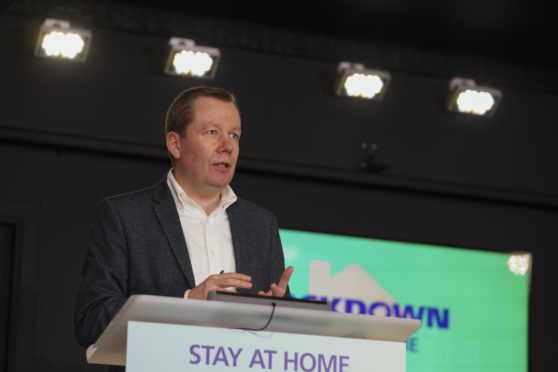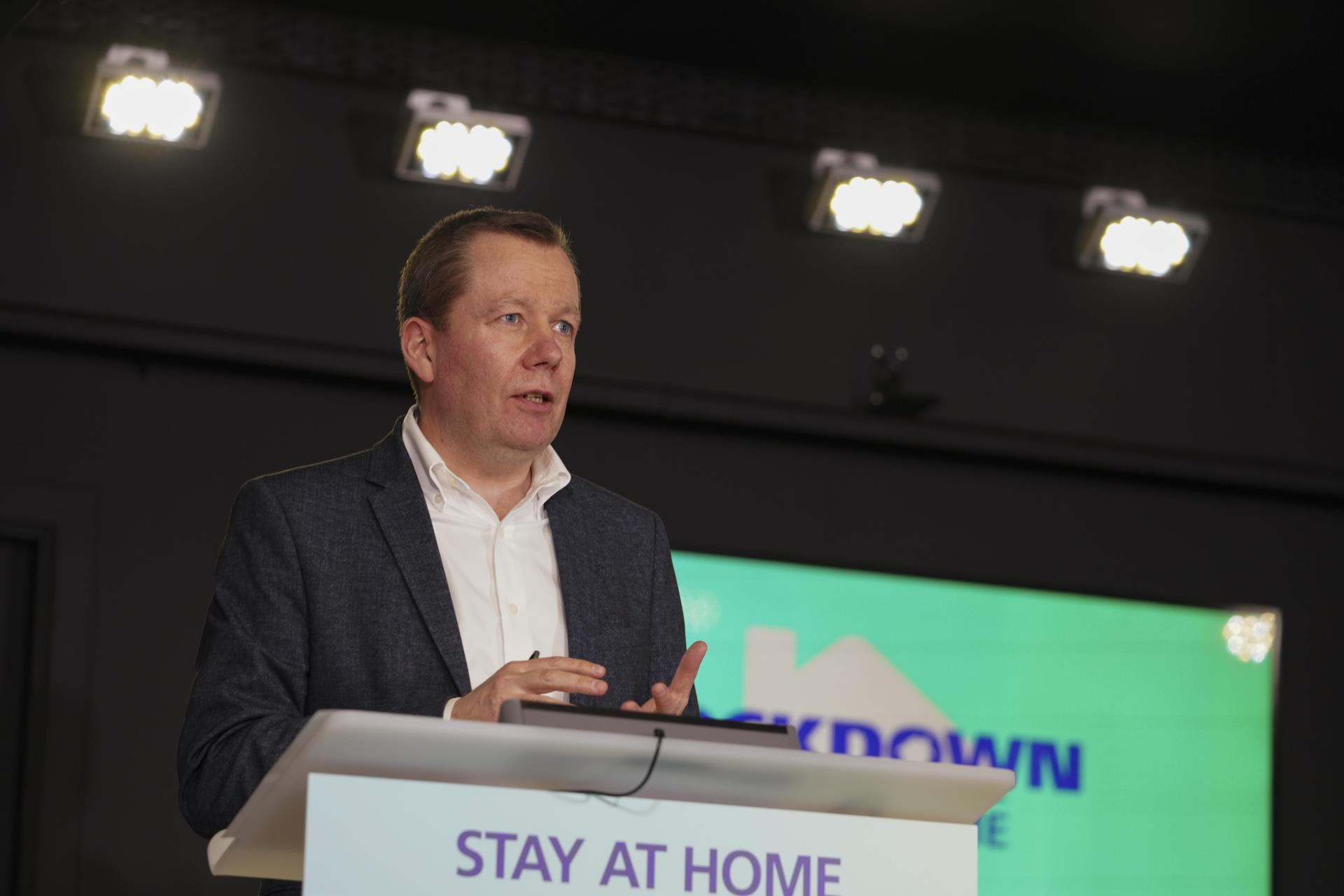Almost 70% of hospitality venues in Aberdeen have not signed up to a Scottish Government app designed to speed up coronavirus contact tracing and contain outbreaks.
The city has roughly the same registration rate for the Check In Scotland app as Edinburgh and Glasgow, while Dundee – the hardest hit by the third wave of infections – has the lowest take-up on the mainland with just 14%.
The app, which was launched in April, automatically sends contact details to the NHS when customers scan a QR code with their mobile phone when they enter and leave premises.
Across Scotland, more than 70% of pubs, bars and restaurants have failed to sign up to the scheme.
The take-up figures were revealed by the Sunday Post, after a week when a record number of positive cases were identified and national clinical director Jason Leitch admitted the country’s contract tracing system was under increasing strain.
Rising cases increase pressure
The proportion of positive cases waiting more than 48 hours to be contacted by tracers rose to 28% last week, up from 15% in the previous week.
Leitch said the delays can lead to bigger outbreaks.
Launching the app on April 26, chief medical officer Dr Gregor Smith said: “Check In Scotland will help contact tracers reach people faster if there are coronavirus cases linked to a venue they have recently visited.
“The faster we can contact people who might have been exposed to Covid-19, the faster we can stop the spread of the virus, and keep moving towards the return of everyday activities.”
By law, anyone entering a licensed premises must give their name and telephone number so NHS tracers can alert close contacts of those who test positive and ask them to isolate.
Some businesses have set up their own electronic systems but many still use pen and paper to take details, which can slow down the contact tracing process.
‘Quick contact tracing is absolutely critical’
Stephen Reicher, who is professor of Social Psychology at St Andrews University and advises the UK and Scottish governments, said: “The reason businesses aren’t registering for the app could be because they think it’s all over, which is a really dangerous perception, because it’s not.
“If you think it’s all over and do nothing about it you get into trouble.
“Contact tracing quickly is absolutely critical to stopping the spread of infection and this app is one element that allows it to be done quickly, so we need to make these things work really well.
“It’s got to be within 48 hours or it’s absolutely pointless, so the contact-tracing figures in Scotland are worrying. Speed is of the essence.”
Figures from the Scottish hospitality industry urged businesses across the country to consider registering with the app to speed up the tracing process.
Paul Togneri, from the Scottish Beer and Pub Association, said: “We’ve sought to highlight the benefits of the Check In Scotland system.
“If someone does test positive all that information is held centrally. Instead of the contact tracers phoning a business and saying we need all this information, they would already have it.”
Stephen Montgomery, from trade body the Scottish Hospitality Group, said: “The app is a helpful thing because it takes the burden off the business itself.
“It saves us from dealing with data protection issues because the data goes straight to NHS Scotland. They then have all the details to hand and it ensures those details are accurate.”
The Scottish Government said the app is voluntary and it is up to venues to decide what method they prefer to use to collect contact details, adding: “Check In Scotland will help contact tracers reach people faster if there are coronavirus cases linked to a venue they have recently visited.
“We continue to encourage non-mandated businesses and settings to collect contact details and consider using Check In Scotland to do this.”

